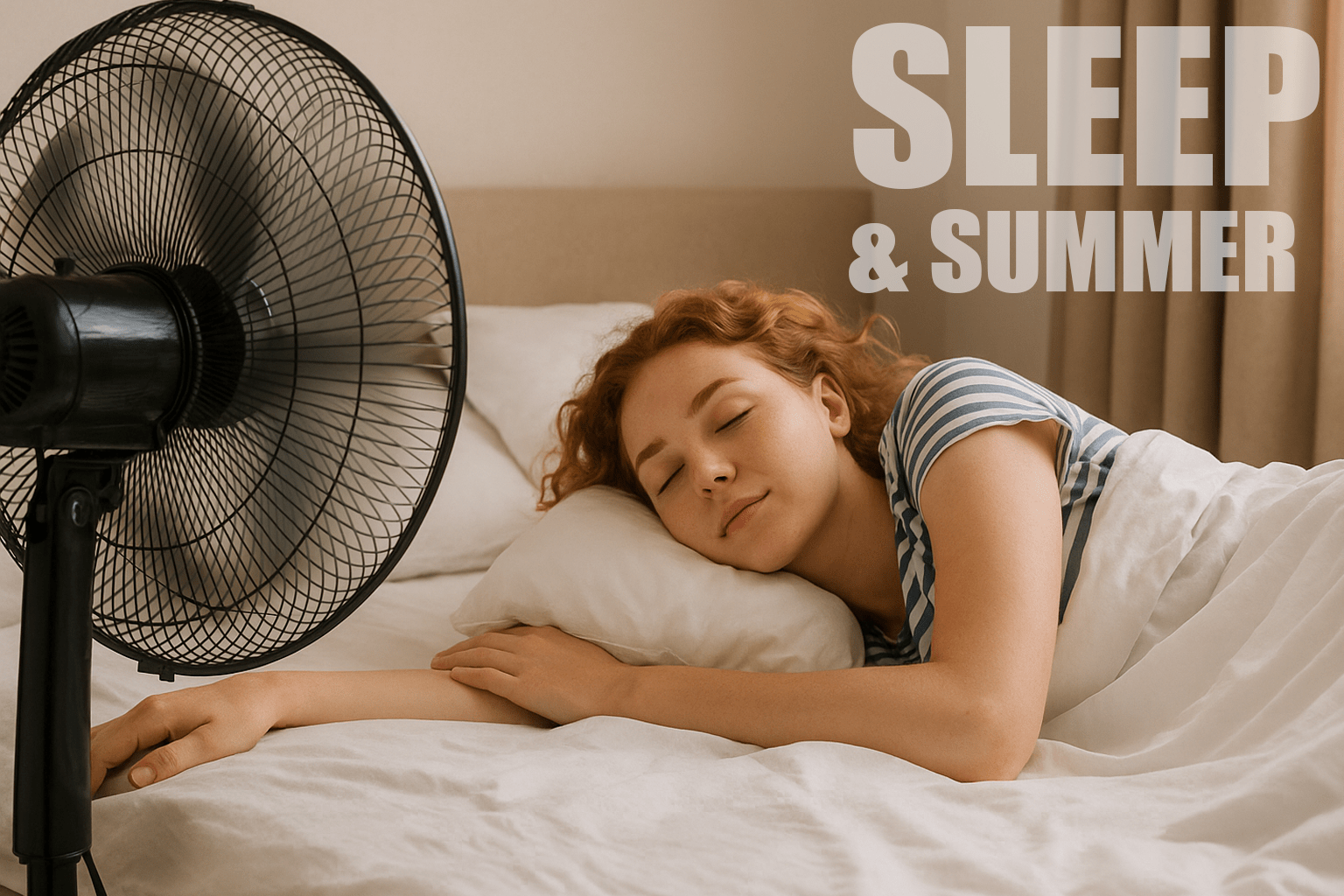
24 Jul Sleep and Summer: How to Beat the Heat and High Temperatures
Summer brings light, holidays, and carefree moments. However, high temperatures and relentless heatwaves can turn sleep into… a real challenge. Heat doesn’t just affect our comfort — it can seriously disrupt the quality of our sleep, impacting our daily life, mood, and health.
Why Does Heat Make Sleeping Difficult?
The ideal temperature for sleep ranges between 18°C and 22°C. When the thermometer rises significantly, the body struggles to lower its temperature — something essential for relaxation and for entering the deeper stages of sleep. The result? Restless sleep, frequent awakenings, sweating, and of course, reduced rest.
Moreover, prolonged exposure to high temperatures increases the risk of dehydration and heat exhaustion, intensifying discomfort during the night.
How to Sleep Better Even During a Heatwave
Fortunately, there are practical ways to maintain good sleep quality even when temperatures reach record highs:
- Cool your space effectively. Use a fan or air conditioner in a well-ventilated room. If you don’t have air conditioning, place a bowl of ice or cold water in front of a fan — it creates a natural cooling effect.
- Ensure fresh air circulation. Keep doors or windows slightly open to allow airflow.
- Block heat from the sun. Close curtains or lower blinds during the day, especially when the sun hits directly. Thermal or blackout curtains can help keep the temperature lower.
- Take a cool shower before bed. A lukewarm or cool shower helps regulate body temperature and prepares you for relaxation.
- Choose the right fabrics. Cotton sheets and pajamas made from natural fibers allow your skin to breathe and wick away moisture. Avoid synthetic materials.
- Stay hydrated. Drink plenty of water throughout the day and keep a glass by your bedside. Dehydration is a common cause of poor sleep.
- Avoid heavy meals. Especially spicy or fatty foods before bed can make digestion harder and raise your body temperature.
- Cooling trick. Place your pillowcases in a plastic bag and leave them in the fridge for a few minutes before bedtime. The cooling sensation will relax you pleasantly.
Good Rest Is Not a Luxury — It’s a Necessity
Quality sleep is vital for our health, energy, and mood. Even on the hottest summer nights, we can ensure that our body and mind get the rest they need by following simple yet essential practices.



